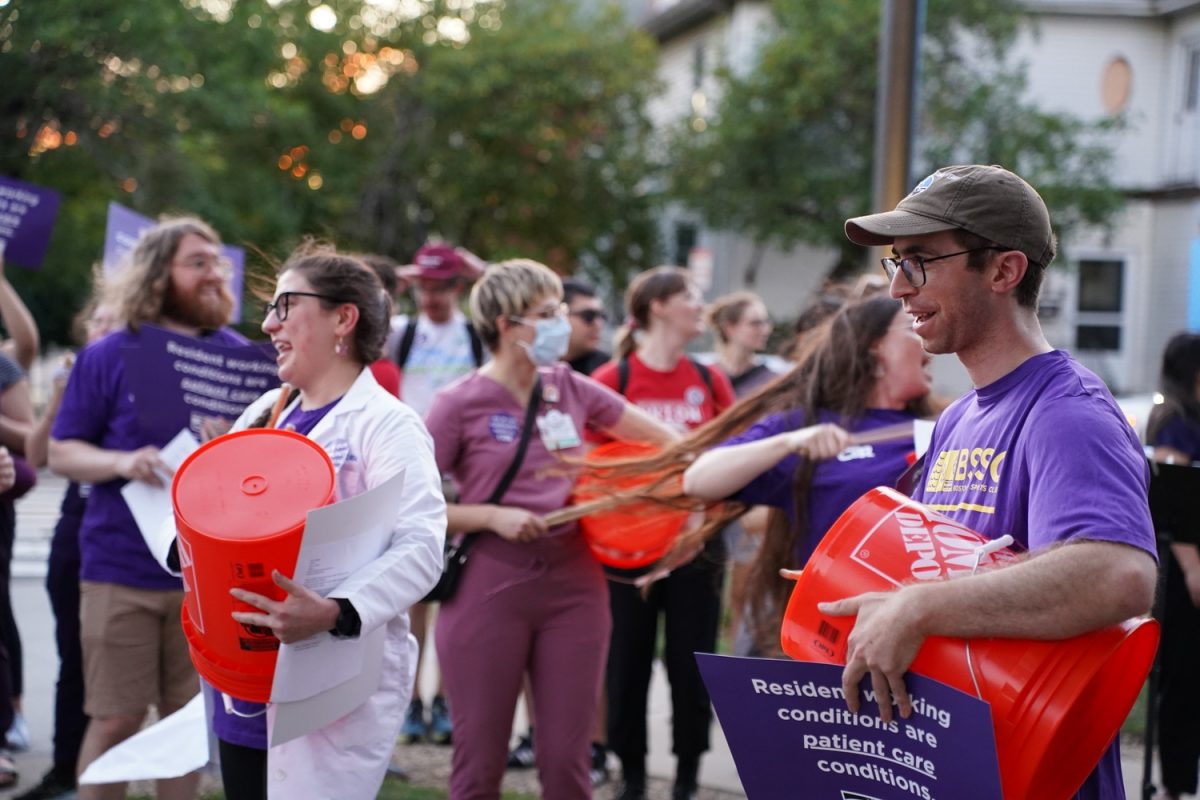On August 28th, 60 medical residents gathered outside Cambridge Health Alliance Hospital to protest a new contract proposal. Detractors of the contract argue that residents are in need of a higher salary to meet the expensive demands of living in Cambridge. In addition, they are fighting for better mental health benefits for residents working at the hospital.
Jose R. Dominguez, a member of the union’s contract bargaining committee, explained to The Harvard Crimson, “We are fighting for a contract that ensures that we are fairly compensated, so we can afford to live in the community we serve.”
CHA’s Residents have graduated from medical school, but are still training under the supervision of other doctors. Many of these residents work up to 80 hours a week, but still can’t afford to pay the rent of living in Cambridge.
Last year, residents and fellows in their first year at CHA made $68,810.57. According to MIT’s living wage calculator, that salary is $6,000 below the living wage for an adult with no kids in Cambridge.
When asked if residents should get a higher salary, City Councilor Jivan Sobrinho-Wheeler told the Register Forum, “Yes, I believe medical residents and interns should be able to afford to live in the city where they are treating patients. Having doctors face housing instability is not good for their own health, and it’s not good for the health of the patients they’re treating.”
He went on to explain, “At the City Council, we are also working on the other side of that equation — trying to make housing in Cambridge more affordable by improving funding and tenant protections and ending exclusionary zoning.” Along with City Councilor Jivan Sobrinho-Wheeler, also in attendance at the rally were Cambridge City Vice Mayor Marc C. McGovern, Massachusetts State Representative Erika Uyterhoeven, and State Representative Evan McKay. “Cambridge City Council is behind you, we’re with you, and we will continue to show up as long as you need us,” McGovern told The Harvard Crimson at the rally.
In addition to a higher salary, residents are also fighting for better mental health care. Previously, the hospital gave them unlimited online therapy and medicine-prescribing visits, in which a psychiatrist prescribes medicine needed for mental illnesses. However, residents were alerted in May that starting July they would be limited to 10 therapy visits and 4 medicine-prescribing visits a year. In a high stress job, the mental well-being of workers is essential in providing the best care to patients.
Jivan Sobrinho-Wheeler explained to the Register Forum, “I got to hear from residents about the long hours and often difficult work of caring for patients in Cambridge and also how much they enjoy caring for people and how meaningful they find the work they do.”
As Cambridge Hospital works to find a contract that is fair to all involved, and City Council works to implement bills and resolutions that support healthcare workers, all that can be asked is that the best interest of the residents and their patients is kept at the forefront of everyone’s minds.
This article also appears in our September 2024 edition.














